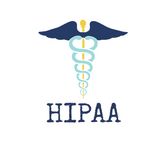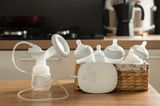A postpartum doula is a person who helps to support your family after the birth of your baby. They perform practical hands-on support as well as emotional and information support. They are very adaptive and can support your family in the way that you need, whether that is being hands-on with the baby so that you can get some sleep, or a shower, or supporting you to be with your baby while they take care of the meals, light housework, sibling care, or lactation support. Each doula is a little different and will have different expertise and focus.
What is the difference between a postpartum doula and a newborn care specialist?
Generally speaking, a doula focuses more on supporting the whole family, talking to worried parents, teaching bathing and diaper changes, as well as providing lactation support. Newborn care specialists tend to do more of the infant care themselves. Many professionals have both trainings and use what they know to support families in whatever way the family needs.
What is the difference between a postpartum doula and a night nurse/nanny?
“Night nurse” is an outdated term when used in this context, as to be called a nurse one must have a nursing credential. There are doulas who are also registered nurses, so can bring that knowledge to the work they are doing. Generally speaking, however, what is meant by night nurse is a night nanny. Night nannies are generally focused on baby care and light housework. They don’t tend to have training in postpartum recovery techniques or lactation support.
These are some examples of how a day or night with your doula might go, but please keep in mind that we are very flexible and every family is different. Some want a 7pm–7am night shift, some want 9am–5pm while a partner is at work. What you need will depend on who you are and your family situation.
Examples of a half day of doula support (minimum 4 hours)
(Some families like to have support in the middle of the day 10–2, for example, but families with older children might choose to have support later in the day to get through bedtime at more like 5–9.)
- Arrive and check in about how things have been going, if there have been any questions since the last visit, and decide what is important to get done.
- Parent feeds the baby and doula supports with positioning and education about infant feeding. They may recommend you see an Internationally Board Certified Lactation Consultant (IBCLC) if there are any red flags that something is outside their scope of practice.
- Parent and baby snuggle and rest together while doula does any remaining dishes in the sink, throws in a load of laundry and makes lunch.
- Doula brings in lunch and holds the baby so that one or both parents can eat with two hands. Something you don’t appreciate enough until you have a new baby around.
- Often times parents will then take a little time to shower or nap depending on how things have been going and how old the baby is while the doula puts the baby to sleep in bed or in a carrier.
- Another feeding usually needs to get squeezed in here as well during a 4-hour shift.
Examples of a night of doula support (minimum 8 hours)
(Usually, 9pm–5am, 10pm–6am or 11pm–7pm, though some clients like a slightly longer night so that they have time to check in with the doula and get ready for bed and still have 8 hours to sleep.)
- Check in to see how things have gone since you have last seen each other, when the last feed was, how long they have been down for the night if they are asleep and so on.
- Parents often go off to sleep; doula puts baby to sleep or starts right in on washing up some bottles, picking up some of the older siblings toys or prepping something nutritious for you to wake up to.
- When the baby wakes in the night if the baby is breast/chestfeeding for that feeding, the doula will bring the baby to the parent or they may come to where the baby is and then help support in getting a good latch especially in the early weeks and hang out to help—or they may move to a different room while you feed to not disturb anyone. After the baby feeds, the doula can burp the baby, change a diaper, and get baby back to bed while the parent goes straight back to sleep.
- If the parent is pumping at night the doula can bring pump parts to them and take away the milk and wash up as well as feed the baby at night.
- If using formula the doula can prepare formula and feed the baby when they wake at night and wash up the bottles before they leave.
- The doula can take notes throughout the night so that in the morning if parents and baby are still sleeping, baby or monitor can be brought in to parents so that everyone can get a little more sleep. We often turn the coffee maker on before we leave.




